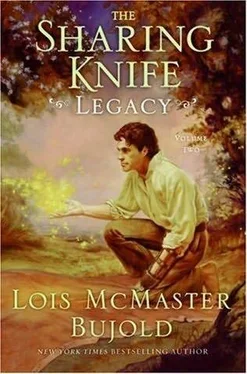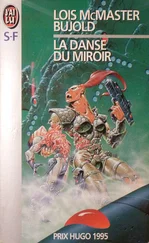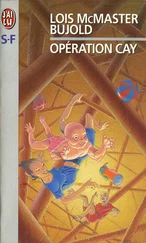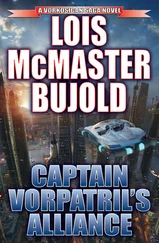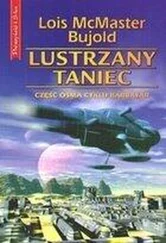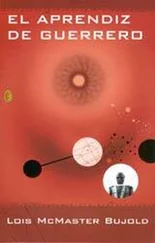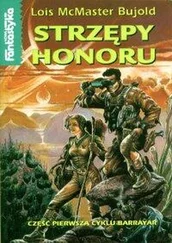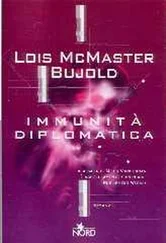Dag hitched up his left shoulder. “Worked. The only clue I gave her was to mention—days earlier, in another conversation altogether—that blood held a person’s ground for a while after leaving the body.”
“Fluke,” muttered Dar, though more faintly. Craning anew at the cord. “Yeah, that’s life with Spark. Just one fluke after another. Seems no end to them. You were halfway through explaining a making. Go on.”
Dag, Fawn realized, had been through the process from the donor’s side at least once, if with some maker up in Luthlia and not with Dar. In addition to whatever he had learned from being around his brother, however intermittently.
Dar took a breath and went on. “So at the end of the knife-making, we have a little of the pledged donor’s ground in the knife, and that ground is…well, you could say it’s hungry for the rest. It wants to be reunited with its source. And the other way around. So then we come to the priming itself.” His face was stern, contemplating this, for reasons that had nothing to do with her, Fawn thought.
“When the knife is”—he hesitated, then chose the plain word—“driven into the donor’s heart, killing him, his essential ground begins to break up. At this very point of dissolution, the ground is drawn into the knife. And held there.”
“Why doesn’t it just all dissolve then?” Fawn couldn’t help asking, then mentally kicked herself for interrupting.
“That’s another aspect of my making. If you can fluke it out, good luck to you. I’m not just a bone-carver, you know.” His smile was astringent. “When someone—like Dag, for example—then manages to bring the primed knife up to a malice and plunge it in, the malice, which eats ground and cannot stop doing so, draws in the dissolving ground released by the breaking of the knife. You could say the mortal ground acts as a poison to the malice’s ground, or as a stroke of lightning to a tree, or…well, there are a number of ways to say it, all slightly wrong. But the malice’s ground shares in the dissolution of the mortal ground, and since a malice is made of nothing but ground, all the material elements it is holding in place fall with it.”
Fawn touched the scars on her neck. “That, I’ve seen.”
Dar’s brows drew down. “How close were you, really?”
Fawn held out her arm and squinted. “About half my arm’s length, maybe.” And her arms weren’t all that long.
“Dar,” said Dag gently, “if you haven’t grasped this, I’ll say it again; she drove my primed knife into the Glassforge malice. And I speak from repeated personal experience when I tell you, that’s way, way closer than any sane person would ever want to be to one of those things.”
Dar cleared his throat uncomfortably, staring down at the knife in his lap.
It popped out before she could help herself: “Why can’t you just use dying animals’ grounds to poison malices?”
Dag smiled a little, but Dar scowled in deep offense. Dar said stiffly, “They haven’t the power. Only the ground of a Lakewalker donor will kill a malice.”
“Couldn’t you use a lot of animals?”
“No.”
“Has it been tried?”
Dar frowned harder. “Animals don’t work. Farmers don’t work either.” His lips drew back unkindly. “I’ll leave you to make the connection.”
Fawn set her teeth, beginning to have an inkling about the piglet insult.
Dag gave his brother a grim warning look, but put in, “It’s not just a question of power, although that’s part of it. It’s also a question of affinity.”
“Affinity?” Fawn wrinkled her nose. “Never mind. What happened to my—to Dag’s other knife?” She nodded to it.
Dar sighed, as if he was not quite sure of what he was about to say. “You have to understand, a malice is a mage. It comes out of the ground, sessile and still in its first molt, a more powerful mage than any of us alone will ever be, and just gets stronger after. So. First, this malice snatched the ground of your unborn child.”
Fawn’s spirits darkened in memory. “Yes. Mari said no one had known malices could do that separately. Is that important?” It would be consoling if that horror had at least bought some key bit of knowledge that might help someone later.
Dar shrugged. “It’s not immediately clear to me that it makes any practical difference.”
“Why do malices want babies?”
He held out his hand and turned it over. “It’s the inverse of what the sharing knives share. Children unborn, and to a lesser extent, young, are in the most intense possible period of self-making of the most complex of grounds. Malices building up to a molt—to a major self-making, or self-remaking—seem to crave that food.”
“Couldn’t it steal from pregnant animals?”
Dar raised a brow. “If it wanted to molt into an animal body instead of a human one, perhaps.”
“They can and do,” Dag put in. “The Wolf Ridge malice couldn’t get enough humans, so it partly used wolves as well. I was told by patrollers who were in on the knifing of it that its form was pretty…pretty strange, at the end, and it was well past its first molt.”
Fawn made a disturbed face. So, she noticed, did Dar.
Dar continued, “Anyway. Secondly, you drove Dag’s unprimed knife into the thing.”
Fawn nodded. “Its thigh. He said, anywhere. I didn’t know.”
“Then—leaving that knife in place, right…?”
“Yes. That was when the bogle—the malice—picked me up the second time, by the neck. I thought it was going to shake me apart like a chicken.”
Dar glanced at her scars, and away. “Then you drove in the actual primed knife.”
“I figured I’d better be quick. It broke.” Fawn shivered in the remembered terror, and Dag’s left arm tightened around her. “I thought I’d ruined it. But then the malice dropped me and…and sort of melted. It stank.”
“Simplest explanation,” said Dar crisply. “A person carrying something very valuable to them who trips and falls, tries to fall so as to protect their treasure, even at the cost of hurting themselves. Malice snatches rich ground. Seconds later, before the malice has assimilated or stored that ground, it’s hit with a dose of mortality. In its fall, it blindly tries to shove that ground into a safe spot for it: the unprimed knife. A malice certainly has the power to do so by force and not persuasion. End result, one dissolved malice, one knife with an unintended ground jammed into it.” Dar sucked his lip. “More complicated explanations might be possible, but I haven’t heard anything in your testimony that would require them.”
“Hm,” said Dag. “So will it still work as a sharing knife, or not?”
“The ground in it is…strange. It was caught and bound at a point of most intense self-making and most absolute self-dissolution, simultaneously. But still, only a farmer’s ground after all.” He glanced up sharply. “Unless there’s something about the child no one is telling me. Mixed blood, for example?” His look at his brother was coolly inquiring and not especially respectful.
“It was a farmer child,” Fawn said quietly, looking at the soil. It was bare at the base of the steps, with a few broken hickory husks flattened into the old mud. Dag’s arm tightened silently around her again.
“Then it will have no affinity, and is useless. An unprimed knife that gets contaminated can be boiled clean and rededicated, sometimes, but not this. My recommendation is that you break it to release that worthless farmer ground, burn it—or send the pieces back to Kauneo’s kin with whatever explanation you can concoct that won’t embarrass you—and start over with a new knife.” His voice softened. “I’m sorry, Dag. I know you didn’t carry this for twenty years for such a futile end. But, you know, it happens that way sometimes.”
Читать дальше
